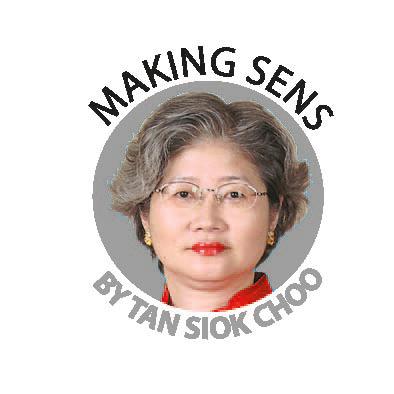AS a staunch feminist and an equally staunch proponent of the importance of writing good English, I found the comments posted on social media by a university student highly offensive on both fronts.
Although the student has apologised profusely for his posts, his display of ultra-sexism – occurring days after International Women’s Day – suggests the many news articles and events aimed at highlighting feminist issues were largely ignored by men in general and by ultra-male chauvinists in particular.
A different approach is needed to diminish, and hopefully eradicate, the alpha-male misogynists’ mindset.
Taking the least objectionable aspect first and assuming the student’s social media message was reprinted accurately, there were three grammatical mistakes.
He wrote: “Man and woman work together.” This suggests the student had a particular man and woman in mind whom he thought should work together. If so, the sentence should have been re-worded: “A man and a woman should work together.”
Assuming the student intended this to be a general statement of intent, he should have written: “Men and women should work together.”
A four-word phrase contained two appalling grammatical errors: “Every woman need men.” By using the singular form “woman” together with the plural form “men”, is the student suggesting every woman needs multiple men? If this wasn’t the meaning intended, this highlights the fact that bad grammar can subvert a writer’s intention.
The student also contravened another basic rule of grammar that pairs a singular noun with a verb. He should have written “Every woman needs a man.” If he was using the Words program, this mistake is inexcusable – because the Words program will show a wavy pale blue line under the word “need”.
That a wannabe medical doctor’s English grammar is lamentable underscores the abject standard of English grammar prevalent in this country.
Another pointer – the student is studying medicine in a private college where fees are significantly higher than that at public universities. Unless he is a scholarship student, this suggests middle-class students are also guilty of using substandard English grammar.
Three reasons for the prevalence of this parlous state – students in Malaysia aren’t spending enough time reading English novels while books written in English, teachers at schools and universities place low priority on writing good English grammar while the proclivity of students messaging their friends on social media has accelerated the declining standard of English usage.
Apart from showcasing his dysfunctional English grammar, the student also displayed his Neanderthal male mindset. In the same message he wrote: “We offer you a safe drive home and you give us (a) make out or sex”, adding that women shouldn’t leave a pub without a guy.
Equally appalling is his obsolete belief that women should either offer a “make out” or sex as equitable payment for a drive home.
This brings to mind another point – sensitising men about feminist issues should start well before adulthood. And the best place to begin is in schools and at their homes.
Why are students taught largely about male historical figures in schools? Instead of learning only about Parameswara, the founder of the Malacca Sultanate, are students knowledgeable about the 16th century Kelantanese Queen Wan Siti Kembang who was famous for her beauty and wisdom?
Similarly, shouldn’t students study the achievements of Hatshepsut, the second female Pharaoh confirmed by historians? Reigning around 1460 BC, Hatshepsut was successful in war, presided over a long era of peace and was one of ancient Egypt’s most prolific builders.
Equally important are familial role models. My grandfather warned his only son that if the latter hit any of his four sisters, even if he was provoked first, my father would be beaten twice as hard.
Respect for women was inculcated through my grandfather recounting stories about enterprising women. One outstanding example was Chua Wan Neo, whose husband, Tan Chay Yan, was a successful entrepreneur and the first person to plant rubber commercially in Malaya.
In 1916, Chay Yan died unexpectedly. Keeping her husband’s death a secret, Wan Neo asked Chay Yan’s staff for information about the business. Unaware their boss was dead, the staff told Wan Neo the truth. Only after she had all the information needed to manage the business did Wan Neo inform the staff about Chay Yan’s death.
Astute and enterprising, Wan Neo managed her husband’s business until the 1930s – presumably when her son, Tan Hoon Siang, returned home with a law degree from Oxford University.
Another outstanding woman was Lee Seck Bin, the mother of my grandfather, who encouraged him to give up teaching at Raffles Institution in Singapore and return to Malacca in 1908 to plant rubber – a courageous suggestion because rubber was then a new commercial crop.
In short, nurturing men who are totally supportive of women must begin in the classrooms and in homes.
Opinions expressed in this article are the personal views of the writer and should not be attributed to any organisation she is connected with. She can be contacted at siokchoo@thesundaily.com














